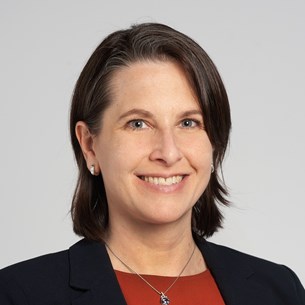Meeting
2023 ASCO Annual Meeting

Cleveland Clinic Foundation - Taussig Cancer Center, Cleveland, OH
Heather McKee Hurwitz , Pamela Combs , Mark Ribbins , Minh-Tri Nguyen , Kimberly Sanders
Background: A variety of interventions within faith-based and medically underserved communities have been utilized to increase racial/ethnic minorities’ participation in health programming and clinical trials. However, the literature lacks studies on which interventions are preferred by church members and leaders to address disparities in clinical trials. Methods: The study utilized focus groups to understand participants’ knowledge and attitudes about medical research/clinical trials and to develop and appraise interventions for and in collaboration with members and leaders of predominately Black/African American faith-based organizations. Participants were recruited by convenience and snowball sampling from organizations involved in the Cleveland Clinic Taussig Cancer Center Community Outreach program’s faith based model called, Stopping Cancer In Its Tracks (SCIIT). Study personnel conducted 6 focus groups at 6 different churches from June through August 2022. Results: 30 participants joined the study. Conversations lasted 90-120 minutes and covered a range of topics. Each group included deep, cathartic sharing about disparities in accessing medical/cancer care and racism, particularly within medicine. Participants explained that low enrollment among Black/African-Americans in clinical trials is a result of everyday and structural racism. Also disparities are linked to the compounded, long-term lack of beneficence or human rights within research and health care for their communities. Accordingly, diversity in clinical trials may improve by creating interventions that address distrust, communication, and information and access gaps, and are tailored to each church. Preferred interventions should: 1) Embody a deep, long-term, relationship-building process. 2) Focus on creating trust by sharing in church services/activities/meals/two-way conversations/cancer screenings. 3) Leverage testimonials from cancer survivors who have participated in clinical trials. The focus groups themselves were felt by participants to be an example of the trust building and knowledge sharing necessary to address disparities. Participants expressed interest to develop interventions in partnership with the study personnel of health care workers. Conclusions: The study fills a gap in the literature by analyzing and amplifying the ideas of Black/African-American church members and leaders from medically underserved communities who generally have been excluded from research. Participants preferred interventions that feature long-term relationship building and engagement. Future research should implement and test the effectiveness of these interventions.
Disclaimer
This material on this page is ©2024 American Society of Clinical Oncology, all rights reserved. Licensing available upon request. For more information, please contact licensing@asco.org
2023 ASCO Annual Meeting
Publication Only
Publication Only: Health Services Research and Quality Improvement
Quality Care/Health Services Research
Access to Care
J Clin Oncol 41, 2023 (suppl 16; abstr e18648)
10.1200/JCO.2023.41.16_suppl.e18648
e18648
Abstract Disclosures
2019 ASCO Quality Care Symposium
First Author: David Michael Waterhouse
2023 ASCO Annual Meeting
First Author: Felice Yang
2018 ASCO Quality Care Symposium
First Author: Susan S. Night
2022 ASCO Annual Meeting
First Author: Evelyn Mawunyo Jiagge